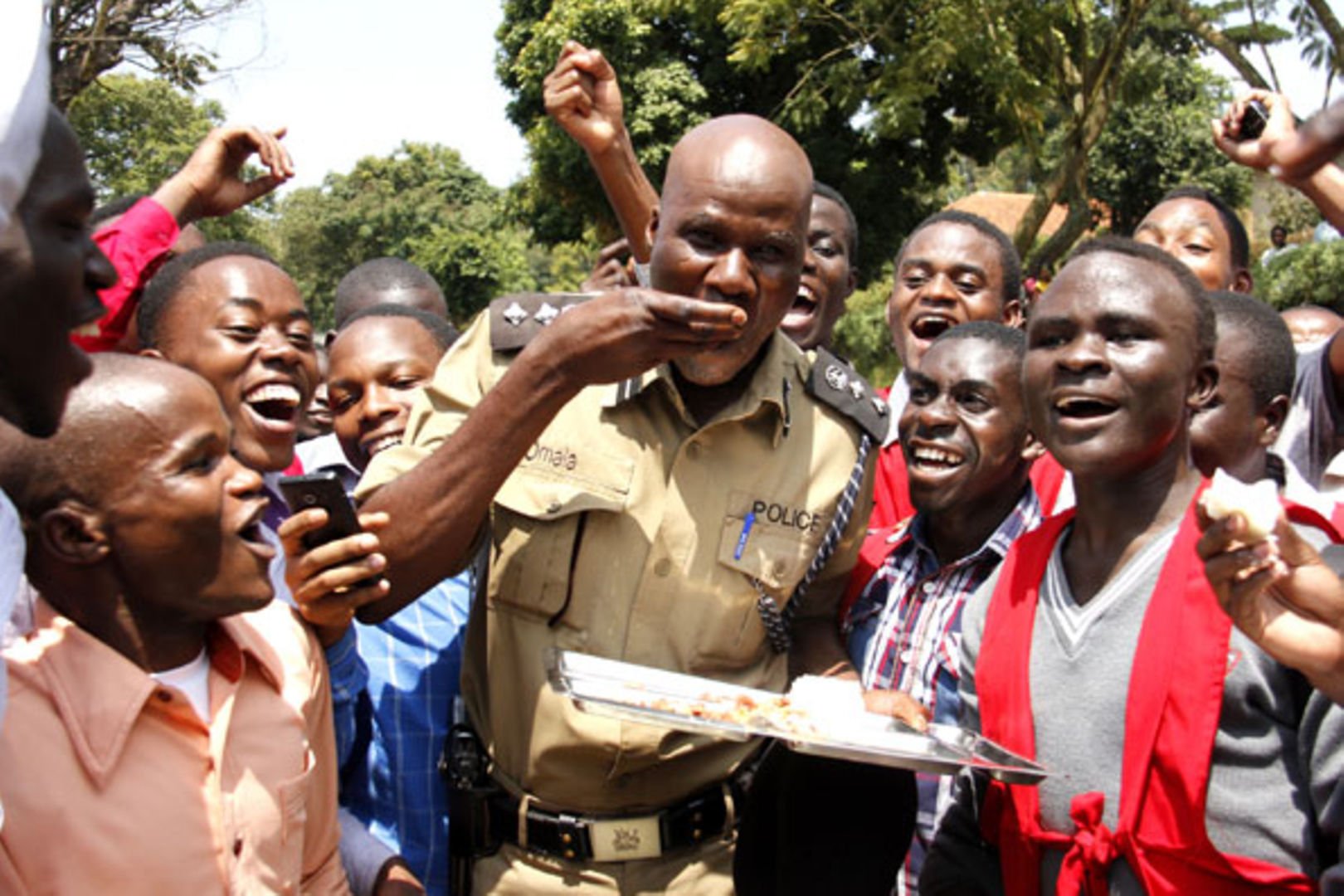Sam Omala, the retired Assistant Commissioner of Police who rose to prominence after ‘tormenting’ Dr Kizza Besigye during the walk-to-work protests in 2011, is now fighting for his life at Mulago Hospital.
Thank you for reading this post, don't forget to subscribe!Videos and images of Omala lying on his hospital bed last week evoked mixed reactions.
Clearly, the officer who made a name for himself by speaking his mind and, at times, ruffling feathers within and beyond the police force, faces one of the toughest battles yet.
It’s much tougher than preventing Besigye from leaving his home. He has to beat prostate cancer.
Some say Omala flew too close to the sun. He thrived under the spotlight and was never afraid to steal the show. At a time when the relationship between the central government and Mengo was at its lowest, Omala always proudly identified himself as “Mukodomi wa Buganda.”
It did not take long for Omala to fall out with the police establishment. In his last years in the force, he was deployed in a rural outpost in Bukedi. He became dejected and adopted a critical stance against the leadership of the police.
When the late Muhammed Kirumira, another controversial officer was being prosecuted for insubordination, Omala stood by him.
Yet Omala’s career was anything but conventional. Some of his actions often earned him criticism from human rights advocates, the opposition and civil society but he had an uncanny ability to stir public discourse on critical national issues.
Those who worked with him described him as “troublesome but authentic,” a man unafraid to challenge norms or speak against the grain.
For instance, last year, he revealed in an interview that he has 16 children and 39 grandchildren.
He also revealed how he had dumped his first wife, a tribemate, in preference for two other women one of which is a Muganda.
“I always call on my wives. I am a born-again Christian who doesn’t believe in changing women like clothes,” he said, unaware of the contradiction in the statement.
In his prime, Omala’s name was synonymous with daring police operations, some of which left a lasting imprint on Uganda’s law enforcement history.
After the November 2020 riots in which more than 50 people lost their lives, Omala said that had he been the commander of the operation there would not be the needless loss of lives.
Despite his polarizing career, Omala’s plight has sparked an outpouring of concern from Ugandans across social media. Many remember him as a larger-than-life figure who did not shy away from controversy.
Yet there are those, especially members of the opposition, who are not bothered by his current health troubles.
As Omala lies in the hospital, battling for his life, his sad story reminds us of the complex legacies left behind by public servants.
They can be loved and hated in equal measure.






